Share

Europod • News
Long Story Short - Trailer
Season 1, Ep. 0
•
Long Story Short is Europod's new daily podcast.
Host Evi Kiorri breaks down one news story shaping Europe at a time, in just under five minutes, cutting through the noise and bringing you the facts, the context, and what it all means. Whether you’re on your lunch break, grabbing a coffee, or just catching your breath, Long Story Short is your new go-to for staying in the know.
Starting January 6th 2025, episodes of Long Story Short will drop by 12.30 PM CET, from Monday to Friday.
Long Story Short is produced by Europod in co production with the Sphera Network.
More episodes
View all episodes
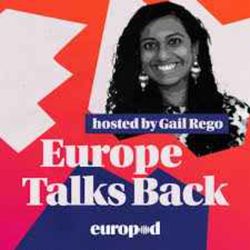
[REUPLOAD] Should zoos be banned?
21:23|Zoos bring us much closer to wildlife, but their existence is a controversial topic. Go online and it’s easy to find groups that advocate for the closure of zoos, assessing that they do more harm than good to animals.Complaints usually relate to confinement, the lack of space, unnatural environments and crowded conditions as the main problems against animal well-being. But experts working in zoos think differently. So the question boils down to: are zoos actually beneficial to animals? Do they have a role to play in conservation? And what can we learn from zoos on the impact of human beings on animals still living in the wild?In this episode, we will investigate these questions with Martin Boye, President of the European Association for Aquatic Mammals, and Kate Werner, Senior Campaign Manager at PETA UK.Join us on our journey through the events that shape the European continent and the European Union.Production: EuropodFollow us on:LinkedInInstagram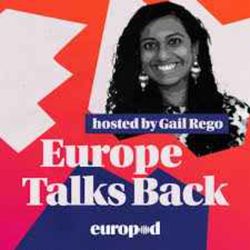
[REUPLOAD] About the racist origins of fatphobia
28:41|The Cambridge dictionary defines fatphobia as the “unreasonable dislike or unfair treatment of people because they are fat”. Going deeper, Fatphobia equates fatness with ugliness, inferiority, and immorality. Subjecting people to fat phobia or weight stigma can be very harmful, not just to people who are fat but also to anyone else who has been co-opted by a system that designates only one “correct” body size or weight. But is fatphobia also an intersectional issue or opression? How does it relate to race, disability, colonisation and enslavement? In this episode we'll be discussing fatphobia and its intersectionality with racism. To do so, we are going to talk to Caleb Luna, a writer, fat activist and professor in the US. We will also be hearing from Saskia Calliste, a black London-based writer. Tune into episode 15 now!Join us on our journey through the events that shape the European continent and the European Union.Production: EuropodFollow us on:LinkedInInstagram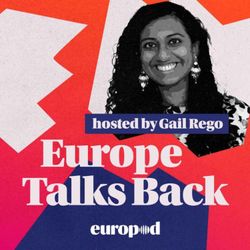
[REUPLOAD] Digital rights and the EU
29:09|In this episode we’ll be speaking with 2 experts from the human rights space to unpack what we mean by our digital rights, how they are being protected or violated and who gets to decide what technology is needed for or against whom. Kahina Rabahi representing the European Anti-Poverty Network and Bibbi Abruzzini representing Forus, a global network of civil society organisations — will help us uncover how digitalisation impacts essential services and civic space.Tune into episode 10 now!Join us on our journey through the events that shape the European continent and the European Union.Production: EuropodFollow us on:LinkedInInstagram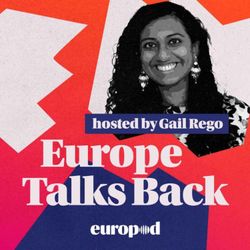
[REUPLOAD] The fight of Lgbtq+ people in Europe
13:16|This episode uncovers the real threat trans- and non-binary persons face, often due to the actions of far-right groups and a climate of hate which can also be traced back to political discourses. We hear from Patricia Reguero, a Spanish journalist from El Salto, and her Greek colleague, Anastasia Vaitsopoulou, who work for the media outlet Propaganda.Tune into episode 9 now!Join us on our journey through the events that shape the European continent and the European Union.Production: EuropodFollow us on:LinkedInInstagram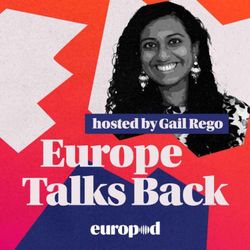
[REUPLOAD] Far right groups in Europe
21:35|In this episode, we delve into what unites far-right groups in Europe and how they have been capitalising on cultural tools like social media and aesthetics to particularly target and successfully recruit young men and women.We hear from Michael Colborne, a journalist and researcher with Bellingcat, an investigation journalism organisation based in the Netherlands. His work focuses on the far right where he oversees and leads investigations and trains journalists in digital investigative techniques.Tune into episode 8 now!Join us on our journey through the events that shape the European continent and the European Union.Production: EuropodFollow us on:LinkedInInstagram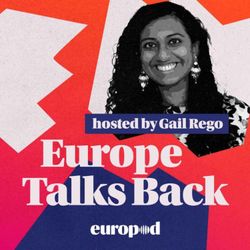
[REUPLOAD] A new generation of student-led protests
15:01|In today’s episode we'll look into the new generation of student, university and worker led protests that are shaping up across Europe, from France to Poland. And we’ll also discuss how this trend relates to a global narrative change around the future of work.We'll hear from journalists Samuele Maccolini from the Italian outlet VD News and Maciej Domagała, from the Polish outlet Krytyka Polityczna. We met with them in Budapest, during a live show produced by the Sphera Network project to discuss this topic.This is the first episode of a special series dedicated to themes relevant to the run-up and context of the upcoming European elections.Tune into episode 7 now!Join us on our journey through the events that shape the European continent and the European Union.Production: EuropodFollow us on:LinkedInInstagram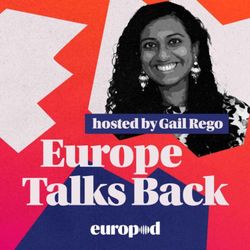
[REUPLOAD] Is gentrification a dirty word?
27:36|In this episode, we’re going to tackle the rapid spread of gentrification. Let’s deconstruct this term and look at the human impact of taking from communities to serve mostly financial interests.Join our host of Europe Talks Back season 3, Gail Rego as she has a conversation with our guest activists and scholars activists and scholars Jordi González Guzmán and Rita Silva.Tune into episode 6 now!Join us on our journey through the events that shape the European continent and the European Union.Production: EuropodFollow us on:LinkedInInstagram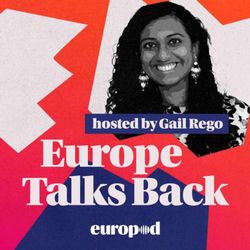
[REUPLOAD] The dark sides of the algorithm
26:32|Artificial Intelligence is all the rage and most of us use it every day knowingly whether it's to get music recommendations or unlock our phones. But how far has IA gotten? Do we know when AI is being used and by whom? And most importantly is AI neutral?Join us on our journey through the events that shape the European continent and the European Union.Production: EuropodFollow us on:LinkedInInstagram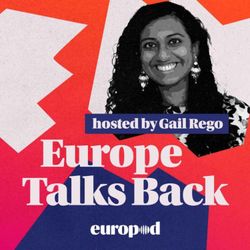
[REUPLOAD] Let's talk about digital gender based violence
25:51|According to the UN, 73% of women worldwide have experienced digital gender-based abuse: non-consensual intimate image-sharing, gender-based slurs or threats, online harassment, and unsolicited pornography. The consequences of this type of abuse go beyond the digital space, posing a threat to victim’s rights, health and safety both online and offline.Join our host of Europe Talks Back season 3, Gail Rego as she has a conversation with our guest activists and scholars Lilia Giugni and Silvia Semenzin.Tune into episode 4 now!Join us on our journey through the events that shape the European continent and the European Union.Production: EuropodFollow us on:LinkedInInstagram